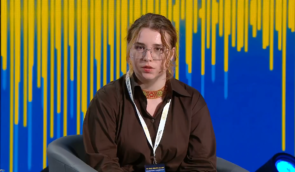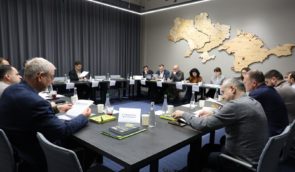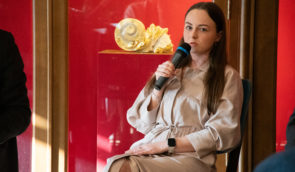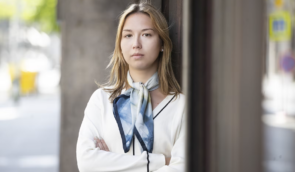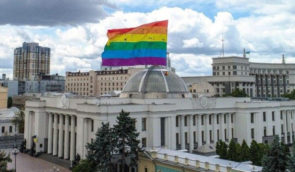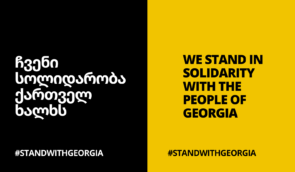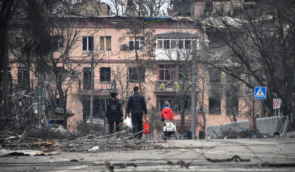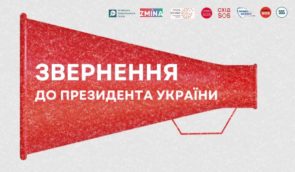Are the decisions of the International Court of Justice successful in the “Ukraine v. Russia” cases: experts’ conclusions
Through the efforts of Ukraine, the heavy bureaucratic machine of international law is moving. Recently, with a difference of two days, the International Court of Justice in the cases of “Ukraine v. Russia” issued two important decisions: the decision on the merits of January 31, 2024 in the case of Russia’s violation of the International Convention for the Suppression of the Financing of Terrorism (ICSFT) and the International Convention on the Elimination All Forms of Racial Discrimination (CERD) and the decision on the 2nd of February 2024, on jurisdiction over allegations of genocide.
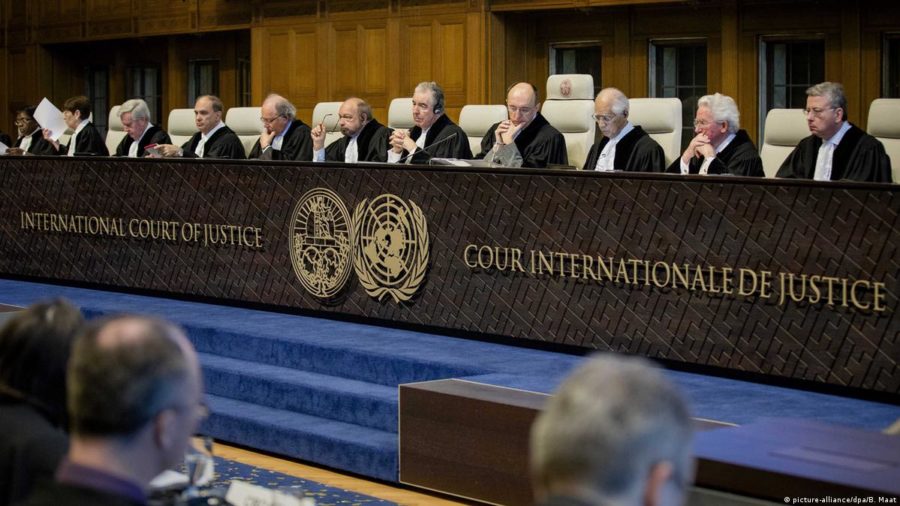 Illustrative image
Illustrative imageDo these decisions satisfy the Ukrainian side? What could be the consequences for Russia and what are the possible further steps in this direction? These questions were discussed by experts on February 15, 2024 as part of the online briefing “Ukrainian cases in the UN International Court of Justice”. The event was organised by the Ukrainian Association of International Law and Human Rights Centre ZMINA, which is a member of the Ukraine 5 AM Coalition.
The general conclusion of the briefing participants is that despite the ambiguous results, this is a great promising step and valuable experience for Ukraine in the conservative system of international justice.
According to Mykhailo Buromenskyi, professor of the Department of International Law at the Institute of International Relations of Taras Shevchenko National University of Kyiv as well as an ad hoc judge of the European Court of Human Rights, Ukraine’s appeal to the International Court of Justice — this is a unique event. This court has considered a very limited number of cases during its existence, and the application procedure itself is quite complicated. Ukraine needed to formulate exactly those accusations on which the court recognises its jurisdiction, and both sides — Ukraine and Russia — recognise the jurisdiction of the UN court.
“If we talk about the convention on the financing of terrorism, then the court is considering such a lawsuit for the first time. Regarding the convention on racial discrimination, this is the second case in history (the first was a lawsuit from Georgia to Russia, which ended unsuccessfully for the plaintiff). As for the genocide case, it is unique in that Ukraine is trying to prove the absence of “genocide” on its territory and the insignificance of the argument that the Russian Federation used to justify a full-scale invasion”, says Buromenskyi.
So, according to Mykhailo Buromenskyi, these are three unique cases where there is no significant practical experience that Ukraine can rely on. Therefore, the obtained result can be considered positive. In the first case, the Russian Federation was accused of violating UN conventions, in the second case, Ukraine has a real chance to refute the groundless accusations of the aggressor state.
Anton Korynevych, the ambassador-at-large of the Ministry of Foreign Affairs of Ukraine and agent of Ukraine in the “Ukraine v. Russia” cases at the International Court of Justice of the United Nations, also considers such a result quite positive at this stage.
“We have recognised Russia as a violator of both conventions in the first case, as well as a violator of the orders on temporary measures of the International Court of Justice. They concern, in particular, the ban on the work of the Mejlis of the Crimean Tatar People and the intensification of aggression — the recognition of the illegal L/DPR and the start of a full-scale invasion”, says the expert.
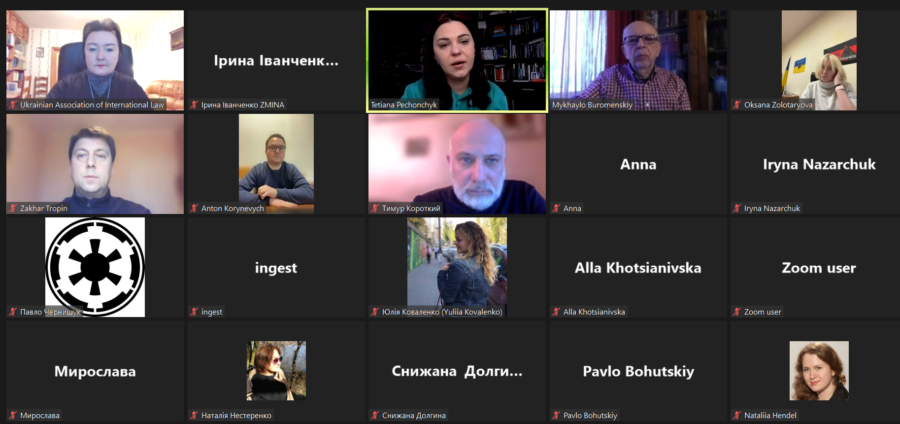 Screenshot from the broadcast of the online briefing
Screenshot from the broadcast of the online briefingRegarding the convention on the financing of terrorism, Korynevych says, Ukraine received a certificate of violation by the Russian Federation in the investigation of the facts of terrorist financing, which can be very important in the further work with the assets of the Russian Federation in various international jurisdictions.
According to the expert, the decision on the Russian Federation’s violation of the Convention on the Elimination of All Forms of Racial Discrimination actually indicates Russia’s destruction of education in the Ukrainian language in Crimea. Korynevych thinks that this is a very important systemic violation that Ukraine should use on various international platforms.
He continues that the recognition of the court’s jurisdiction in the case of genocide enables Ukrainian representatives to dispel the lies of the Russian Federation about the mythical “genocide” that Ukraine allegedly committed since 2014. And this is also important for the 32 countries that joined the case – you can’t just slander the country and use this to launch a large-scale armed invasion, adds Korynevych.
But the key, according to the expert, is the order of the UN Security Council on temporary measures dated March 16, 2022, which orders Russia to stop any military actions on the territory of Ukraine, which began on February 24, 2022, and not to “aggravate the dispute”. Due to the fact that the case has moved to the stage of consideration on the merits, this order remains in force, that is, every day of the ongoing aggression, the Russian Federation violates this order.
According to Zakhar Tropin, Candidate of Jurisprudence, Associate Professor of the Department of International Law at the Institute of International Relations of Taras Shevchenko National University of Kyiv, the received decisions are neither betrayal nor victory. Tropin believes that the UN Court is the most conservative institution in the modern world in terms of legal interpretation, and it never undermines the foundations of international law or takes revolutionary steps. So, the professor says that Ukraine has also become a hostage of this conservative approach and very narrow interpretation of conventions, in particular on the financing of terrorism, which gives other countries an understanding of the workarounds that can be used in this matter.
Among the encouraging points, according to Tropin, in the first case, the decision that the Russian Federation does not carry out an effective investigation of cases related to the financing of terrorism is very important. And this makes it possible to consider the legal system of Russia as a tool of intimidation and persecution. In particular, the warrants issued by the Russian Federation against the judges of the International Court of Justice and the Prime Minister of Estonia are evidence that in Russia, the criminal process is used as a means of pressure, the expert adds.
“If we analyse the history of the cases considered at the International Court of Justice, it can be seen that the court almost never grants an undisputed victory to one of the parties. Of course, this does not meet the request of Ukrainian society to establish justice. But the cases are very complicated, a huge array of evidence has been submitted. There is no confidence that the court studied all the arguments of the parties in detail and was able to separate propaganda from the truth”, says Oksana Zolotarova, the director of the Department of International Law of the Ministry of Foreign Affairs of Ukraine, co-agent of Ukraine in the “Ukraine v. Russia” cases at the International Court of Justice.
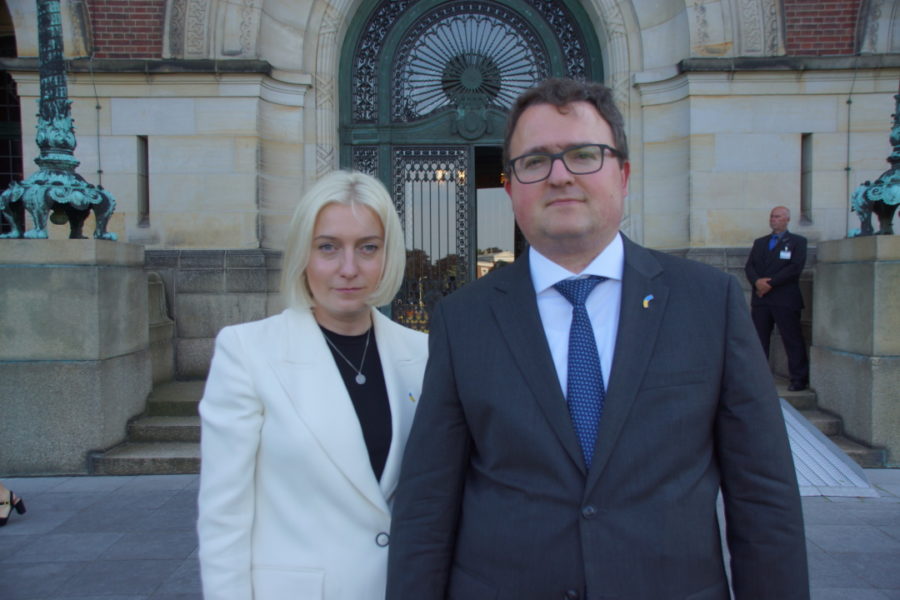 Oksana Zolotarova and Anton Korynevych. Photo: Iryna Drabok / Ukrinform
Oksana Zolotarova and Anton Korynevych. Photo: Iryna Drabok / UkrinformShe notes the importance of paragraphs 397 and 398, in which the court found that by its actions in recognising the independence of the so-called L/DPR and launching a full-scale invasion, Russia violated the interim measures order. According to Zolotarova, this can be interpreted so that Russia has already been recognised as a violator of international law, and this affects its reputation and place in the system of international relations, as well as the position of other countries regarding cooperation, and the strengthening of sanctions, etc. Ukraine will use these facts to strengthen its rhetoric on international platforms, the expert is convinced.
According to Zolotarova, the obtained intermediate results are a valuable experience in preparing for further consideration of these and new cases, understanding how the mechanism of the ICJ works and what needs to be emphasised in order to achieve the maximum possible result.
Author: Lesia Panchenko, a journalist of Ukraine 5 AM Coalition

